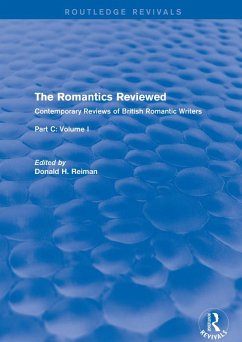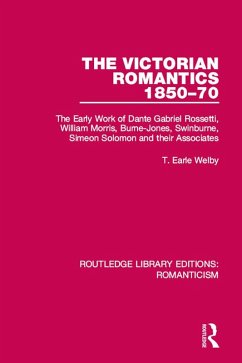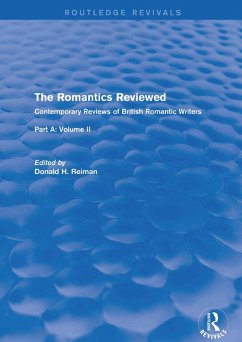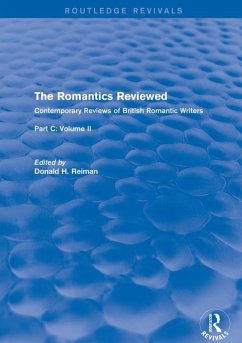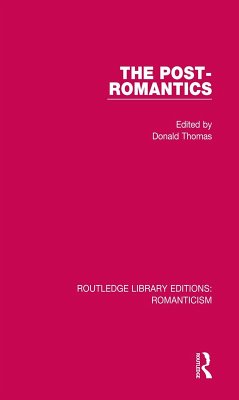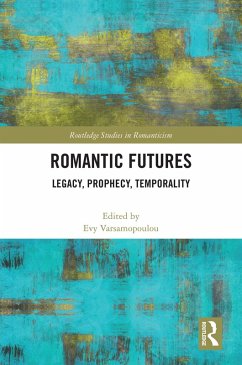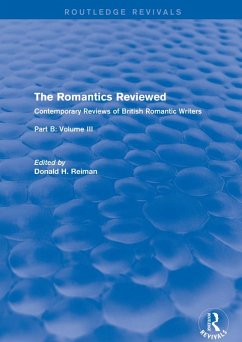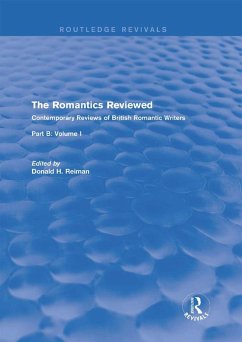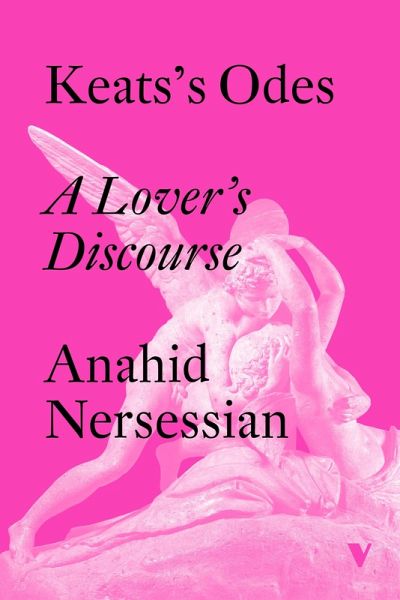
Keats's Odes (eBook, ePUB)
A Lover's Discourse

PAYBACK Punkte
6 °P sammeln!
"When I say this book is a love story, I mean it is about things that cannot be gotten over-like this world, and some of the people in it."In 1819, the poet John Keats wrote six poems that would become known as the Great Odes. Some of them-"Ode to a Nightingale," "To Autumn"-are among the most celebrated poems in the English language. Anahid Nersessian here collects and elucidates each of the odes and offers a meditative, personal essay in response to each, revealing why these poems still have so much to say to us, especially in a time of ongoing political crisis. Her Keats is an unflinching a...
"When I say this book is a love story, I mean it is about things that cannot be gotten over-like this world, and some of the people in it."
In 1819, the poet John Keats wrote six poems that would become known as the Great Odes. Some of them-"Ode to a Nightingale," "To Autumn"-are among the most celebrated poems in the English language. Anahid Nersessian here collects and elucidates each of the odes and offers a meditative, personal essay in response to each, revealing why these poems still have so much to say to us, especially in a time of ongoing political crisis. Her Keats is an unflinching antagonist of modern life-of capitalism, of the British Empire, of the destruction of the planet-as well as a passionate idealist for whom every poem is a love poem.
The book emerges from Nersessian's lifelong attachment to Keats's poetry; but more, it "is a love story: between me and Keats, and not just Keats." Drawing on experiences from her own life, Nersessian celebrates Keats even as she grieves him and counts her own losses-and Nersessian, like Keats, has a passionate awareness of the reality of human suffering, but also a willingness to explore the possibility that the world, at least, could still be saved. Intimate and speculative, this brilliant mix of the poetic and the personal will find its home among the numerous fans of Keats's enduring work.
In 1819, the poet John Keats wrote six poems that would become known as the Great Odes. Some of them-"Ode to a Nightingale," "To Autumn"-are among the most celebrated poems in the English language. Anahid Nersessian here collects and elucidates each of the odes and offers a meditative, personal essay in response to each, revealing why these poems still have so much to say to us, especially in a time of ongoing political crisis. Her Keats is an unflinching antagonist of modern life-of capitalism, of the British Empire, of the destruction of the planet-as well as a passionate idealist for whom every poem is a love poem.
The book emerges from Nersessian's lifelong attachment to Keats's poetry; but more, it "is a love story: between me and Keats, and not just Keats." Drawing on experiences from her own life, Nersessian celebrates Keats even as she grieves him and counts her own losses-and Nersessian, like Keats, has a passionate awareness of the reality of human suffering, but also a willingness to explore the possibility that the world, at least, could still be saved. Intimate and speculative, this brilliant mix of the poetic and the personal will find its home among the numerous fans of Keats's enduring work.
Dieser Download kann aus rechtlichen Gründen nur mit Rechnungsadresse in A, D ausgeliefert werden.






